John Lennon, Yoko Ono ‘Daytime Revolution’ Film: An Unforgettable Week in 1972
by Best Classic Bands Staff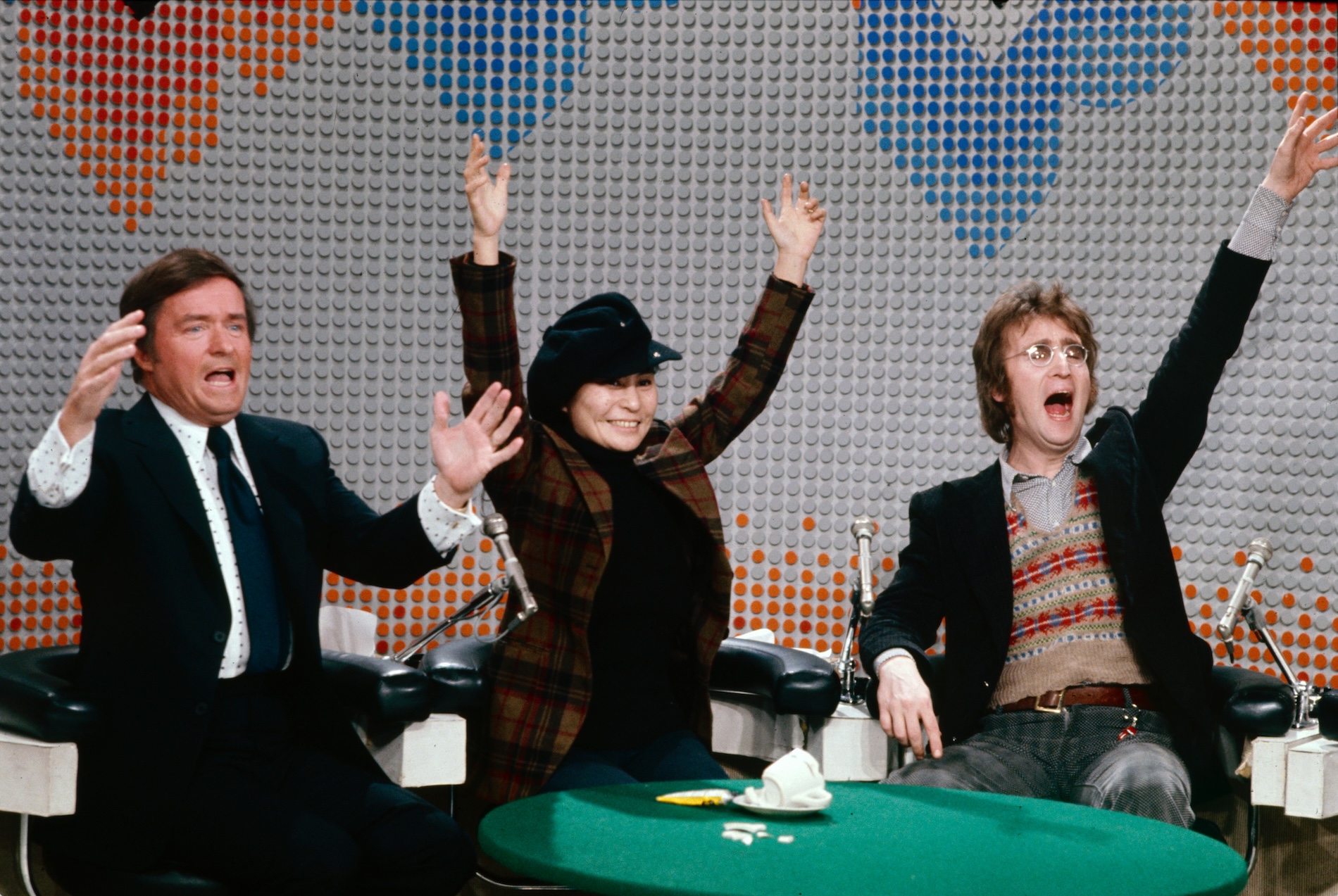
Mike Douglas, Yoko Ono and John Lennon in a scene from Daytime Revolution (Photo © Michael Leshnov; used with permission)
For one extraordinary week in 1972, John Lennon and Yoko Ono descended upon a Philadelphia broadcasting studio to co-host the iconic Mike Douglas Show, at the time the most popular show on daytime television with an audience of 40 million viewers a week. What followed was five unforgettable episodes of television, with Lennon and Ono at the helm and Douglas bravely keeping the show on track. Acting as both producers and hosts, Lennon and Ono handpicked their guests, including controversial choices like Yippie founder Jerry Rubin and Black Panther chairman Bobby Seale, as well as political activist Ralph Nader and comic truth teller George Carlin. Their version of daytime TV was a radical take on the traditional format, incorporating candid Q&A sessions with their transfixed audience, conversations about current issues like police violence and women’s liberation, conceptual art events, and one-of-a-kind musical performances, including Lennon’s unique duet with Chuck Berry and a poignant rendition of “Imagine.”
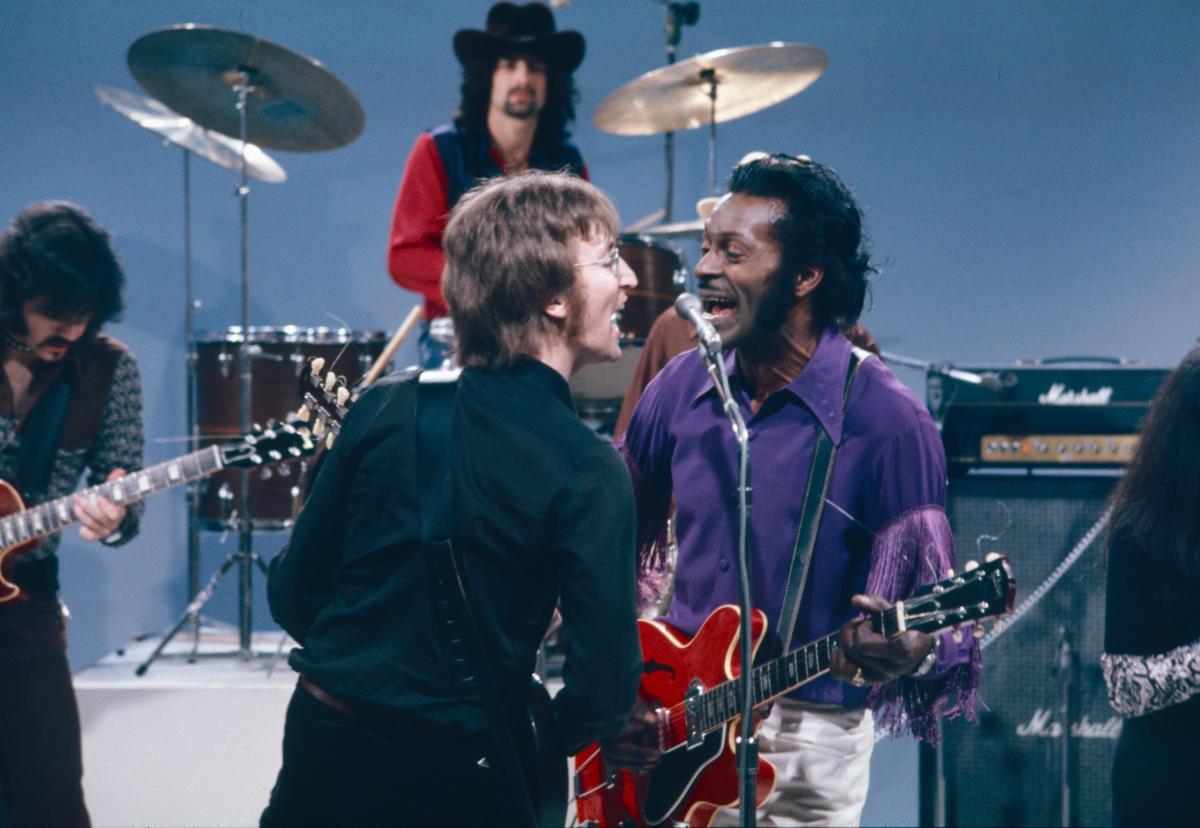
John Lennon and Chuck Berry in Daytime Revolution
Daytime Revolution, a new documentary about the unforgettable week of February 14, 1972, from Emmy and IDA Award-winning filmmaker Erik Nelson, opens on October 9, 2024, as a special cinema event timed to Lennon’s birthday, with screenings in over 50 cities nationwide. See the full list of cities here. The film features archival footage from each of the five episodes as well as interviews with six of the original guests, all reconstructing the music, the magic, and the behind-the-scenes madness of this unprecedented and historic week of television.
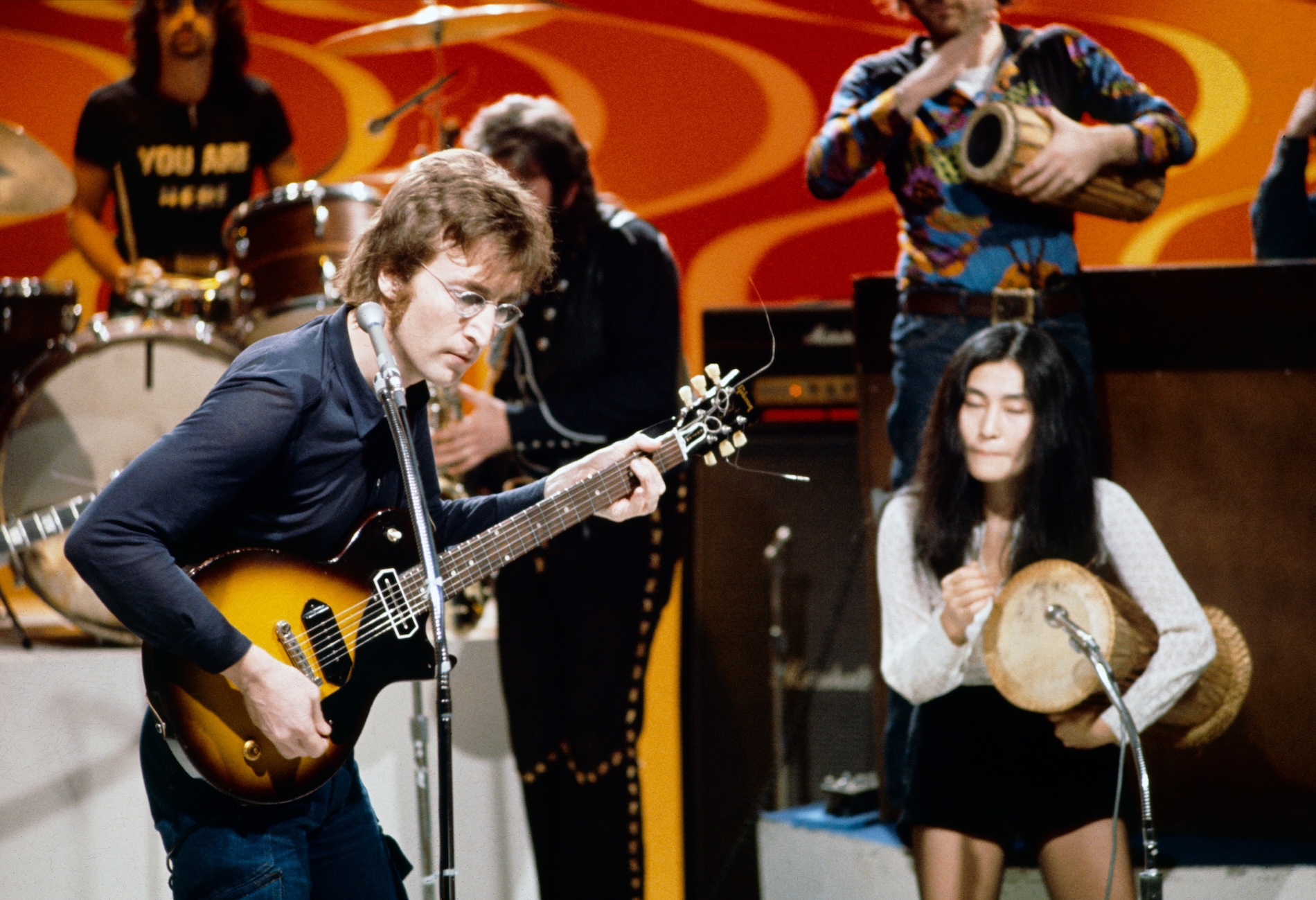
John Lennon and Yoko Ono in Daytime Revolution
“It’s been said that Woodstock was the high water mark of the revolutionary era that began in the ’60s,” says its director, Nelson, “but I beg to disagree. For one week in February of 1972, two of the most vibrant, articulate and brilliant revolutionaries were handed a viewing audience of 40 million mainstream Americans, and allowed to present their vision, unmediated. Daytime Revolution celebrates that unforgettable week: a time when anything was possible, where for five straight afternoons on a wildly popular mainstream talk show an extraordinary fusion of music, art and politics tried to save the soul of America.
Related: Lennon and Ono appeared on Jerry Lewis’ annual Labor Day telethon that same year
“During that week, John and Yoko were welcomed with open arms and more importantly, an oen mind, by the host, Mike Douglas. But [they] would pay the price for their vision, and these five shows led directly to Richard Nixon using every means at his disposal to have John Lennon deported, a legal battle that would consume the couple for the next three years.
“In 2006, I was the executive producer of The U.S. vs. John Lennon, a feature documentary that chronicled that lengthy and ultimately unsuccessful efforts of Nixon to deport Lennon. The ‘trigger’ for that intense abuse of governmental power were these shows, and the experience of working with Yoko was a rewarding one. But, in the back of my mind, I always felt that there was more of a story there to be told – and the best way to tell that story would be to duplicate the experience of watching those shows as they originally were broadcast.”


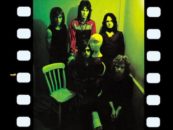
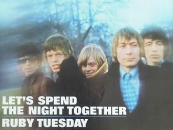
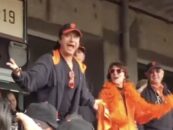
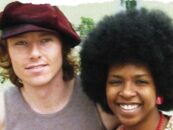

3 Comments so far
Jump into a conversationDaytime 70’s talk show hosts were epic and I’m not sure they even knew it. Douglas with Lennon/Ono and Dinah Shore with Bowie/Pop.
Any reference then and now to Yoko Ono is so offensive, yet her name and face continue to be advertised. She and Lennon, with his own selfish personality, put an end to what could have been one of the greatest bands ever. And to his son, Julian, to make music that would have put a bandaid on that deep wound!
I’m glad the Beatles ended when they did. And I’m equally glad that they never reunited. They could have kept going like the Rolling Stones and the Who. Had they done that, though, they would have ended up being an irrelevant jukebox band like those groups did. Thankfully, however, the Fabs quit at the top of their game and when they still mattered in the culture and the industry. The members then went on to release many great singles and albums as solo artists. So, I would like to thank Yoko Ono for showing John Lennon that there was life after the Beatles. She is a remarkable woman who had a hugely positive impact on an equally remarkable man.